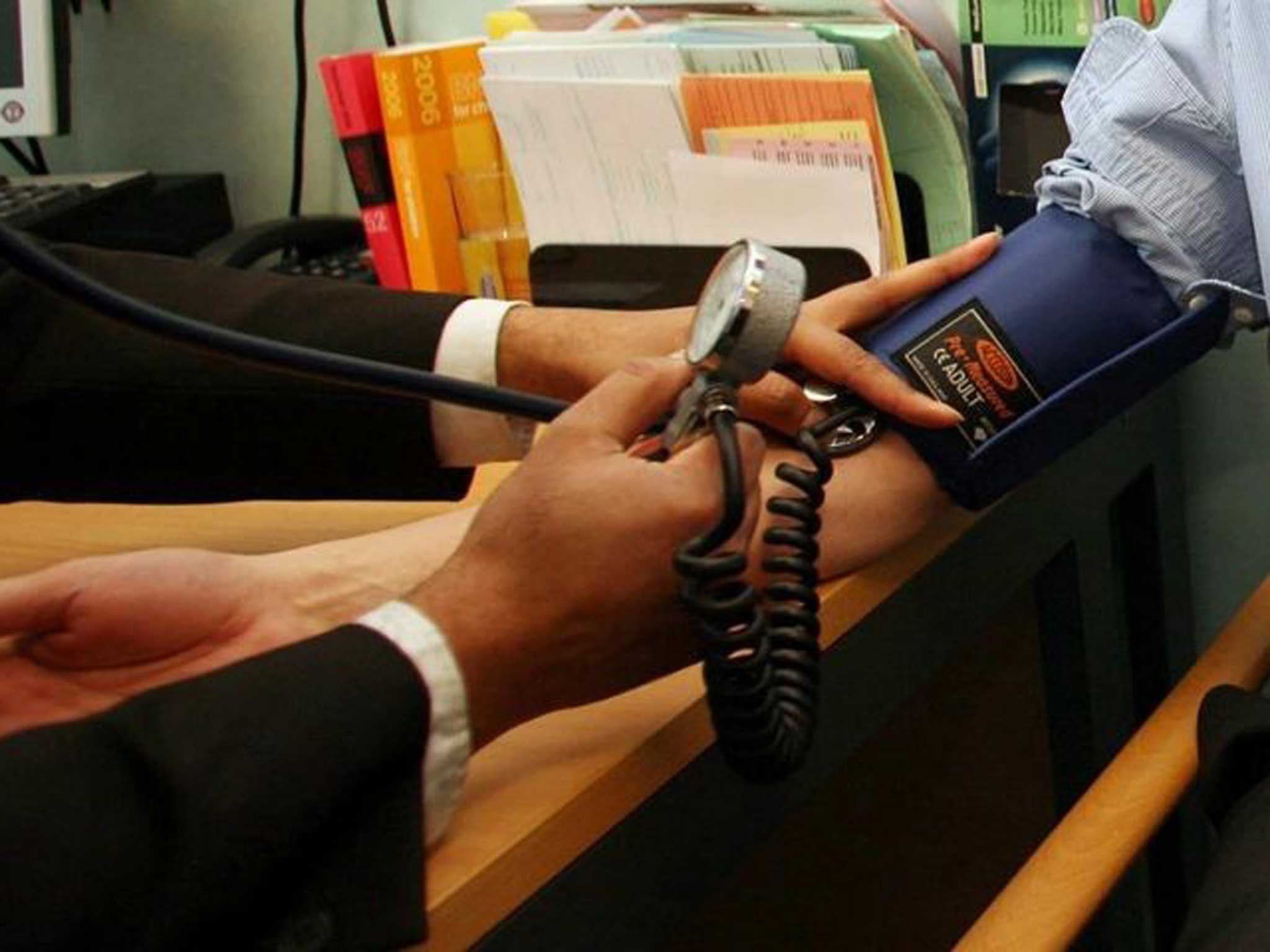Power to the people... Can't get a doctor's appointment? A Labour MP says there'd be no problem if GPs had to compete for their patients

We've all been there. Waiting to telephone for an appointment when the GP surgery finally opens. Then repeatedly ringing, only to find it's constantly engaged. Eventually being offered an appointment the following week, if we're lucky.
And why is it that we can buy pretty much anything we want at any time of the day, and visit libraries and leisure centres at weekends, but can usually see a GP only on a week day between nine and five? Why do we put up with it?
Family doctors are essentially private businesses but, unlike any other businesses, they can pick and choose their customers, and then they can pick and choose when they will see them.
Surely, it's time to put patients in charge, so that we can choose a GP and an appointment instead?
People should have the right to stay with and be treated by the person they often describe as their "own doctor", particularly if they have a long-term condition. But just 35 per cent of patients get to see their preferred GP on most occasions, and 44 per cent of patients don't even have a preferred GP.
So why can't the rest of us choose to control our own medical records, and ring round to find a GP who will see us when and where we want and be paid for doing so?
They would soon start opening at weekends and in the evening then. You would even find GPs opening surgeries in town and city centres and near where people work, so you could see a doctor without having to take a day off. Just as in any other area, competition and choice would drive up the quality of service and improve responsiveness.
The NHS Constitution already gives patients the right to choose their GP. Far from undermining NHS values, the freedom to exercise this choice puts them into practice.
And, with the delay by six months of the introduction of the Government's care.data system for electronic medical records, there is the opportunity to put patients in charge of their records and the services that they use.
More choice would have to come with safeguards – you would obviously need to prevent patients shopping around for the diagnosis they want and make sure that there is support for local surgeries – but there is no reason why these issues could not be overcome, and they exist in the current system anyway.
I am sure the British Medical Association, the closed-shop doctors' union, will find all sorts of other ways to argue that change which empowers the consumer will not work. Vested interests always do, but Labour's challenge is to be on the side of the patient and the parent, the consumer and the customer.
It is not just the NHS that can benefit from this approach: the same goes for other public services, such as education.
Over the past few weeks, every MP will have been inundated with anguished calls from worried parents of children who have been turned down by their first-choice schools. The most successful schools with the best results in my own constituency are all oversubscribed.
But why should pupils be forced to go to a second-rate school they have not chosen instead of getting the first-class education they want? Why can't we take advantage of parents' choices to promote a higher quality service?
Again, the answer is to put the parents and pupils in charge and allow popular, oversubscribed schools to expand to meet the demand for more places.
The funding a school gets is already determined by the number of pupils it has, but the problem is that the funding follows the pupils, so the school never gets the resources it needs to build the extra classrooms and other facilities needed to accommodate extra pupils.
Popular, oversubscribed schools with consistently good results, strong governance and a record of sound finances, perhaps rated outstanding by Ofsted, should be allowed to borrow the funds needed to provide the new facilities and to pay back the loan with the increased funding that the extra pupils would generate.
In areas such as the Black Country, which fall behind the national average, we need action like this to give as many pupils as possible a better education.
Where Ed Miliband has spoken up for consumers he has struck a nerve.His campaigns against soaring energy bills, payday lenders and rip-off train fares all won public support.
But it is not just powerful producers, monopolies and cartels that we need to tackle, it is unresponsive public services, too. In the past, we have improved public services by increasing expenditure, but that option is no longer available.
George Osborne's missed targets mean that we will inherit a deficit of almost £75bn. We need to show how we can get more out of public services when there is less money around.
We will only be trusted to run the economy if we can show that we can improve public services without increasing taxes or just throwing more money at them.
By embracing choice, we can make savings, deliver better public services and, most of all, show that we are on the side of ordinary families.
Ian Austin is Labour MP for Dudley North
Join our commenting forum
Join thought-provoking conversations, follow other Independent readers and see their replies
Comments
Bookmark popover
Removed from bookmarks